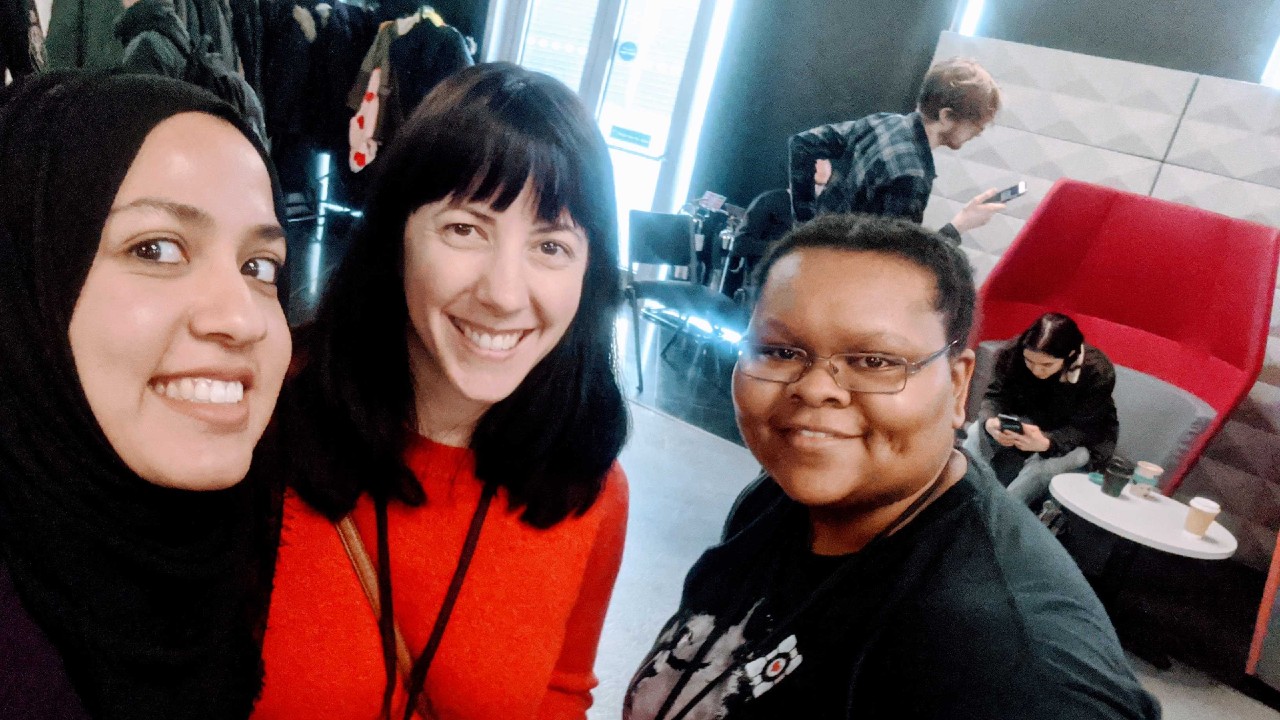Life as a Muslim designer

I think my faith has made me a more sensitive designer
At dxw, we have a diversity and inclusion group to help make changes to our organisation so everyone feels included. I’ve been a member of the group for a while and I started thinking about my faith and how it affects me as a designer. So I asked my dxw colleagues to send me questions on what they would like to know more about in terms of my faith and how it impacts my work and personal life.
My aim was to create an inviting way for questions to be asked openly and answered as honestly as possible. So, let’s get into it…
How does your religion interact with your work?
I think my faith has made me a more sensitive designer. An effective designer carefully considers how to create things and the impact on clients. This requires a great deal of empathy and delicacy, which my faith encourages.
Working in tech is most certainly a lifestyle choice, and the passion, commitment and motivation that I have within my faith applies to my work too. Islam is a way of life, which is centred on the 5 Pillars of Islam:
- Faith (Shahada)
- Prayer (Salat)
- Charity (Zakat)
- Fasting (Sawm)
- Pilgrimage (Hajj)
There’s a focus on punctuality and time management as we observe regular prayers, and a huge emphasis on respect for others (love thy neighbour) which definitely applies to the way I aim to treat my colleagues.
The 5 pillars help to keep my morals in check, such as not doing what I shouldn’t be doing (lying, gossiping, cheating, and so on), with prayers giving my day structure and keeping me grounded. Charity and fasting make me more understanding of others less fortunate, which also makes me more appreciative of the work our clients do in the public sector and how we make a contribution that benefits all of society.
What are some things it’s helpful for us to know about your experience of working with mostly non-Muslim people?
I want my colleagues to understand that it’s okay to eat around me when it’s Ramadan and feel comfortable doing so. There’s a quote from the Messenger of Allah, Mohammed (PBUH):
If food is eaten in the presence of one who is fasting, the angels send blessing upon him.
During prayer times, trying to find an available meeting room or space that’s private can be difficult. Something else to think about is that social gatherings which are based around alcohol aren’t that inclusive. Being able to accommodate everyone is important. It doesn’t necessarily mean that the food has to be halal but make sure there’s a non-alcoholic, vegetarian option and more focus on activities.
What can we do to help?
Meeting rooms are great but they need to be available and have privacy to be used for prayer. Sometimes meetings run over or people use the room without booking it. This can make it difficult to find somewhere to pray when you need to, which can be quite stressful.
It’s better to have a dedicated quiet space which is only used for wellbeing. Having a quiet room available for prayer, which takes around 5-7mins, really helps. Dividers can be used to section off an area and provide a dedicated faith/prayer space for privacy. This would mean more than 1 person can use use the space for any wellbeing purpose.
What is Ramadan?
Ramadan is a month of fasting and abstaining and detoxing your mind and body.
Those participating in Ramadan abstain from food, drink, and impure thoughts between the hours of sunrise (Fajr) and sunset. This allows us to focus on prayer and connecting with God (Allah) as well as increasing charitable acts and good deeds throughout the month. Fasting allows each individual to know what it means to go without, to find patience with ourselves and people around us, and to have compassion for those less fortunate.
The act of fasting allows individuals to know the hardships of millions around the world who live in poverty and famine, leaving the participant feeling more grounded and grateful for all that Allah has given them. At the end of the month, zakat (charitable) donations during Ramadan are made then Eid-ul-Fitr is a celebration with loved ones. Eid is a time of feasting and celebration for Muslims, with gifts exchanged.
If you want to know more about Ramadan, please visit the Muslim Hands website.
Tell us about your personal experiences of fasting and working during Ramadan
Sometimes it feels like a long day because we wake up early for morning prayer and you experience high and low energy levels throughout the day. Most importantly the first week of fasting is always difficult, because your body goes from eating as and when it likes then all of a sudden you stop.
But after the first week, there’s an energy shift. You’re more focussed and there’s a clarity of thought because your body gets used to running on stored fat for fuel.
What can be done to be considerate and help you celebrate Ramadan?
I prefer starting work earlier, and finishing earlier, as I’m more energetic during the early hours. Scheduling team activities and meetings during the beginning of the day would be helpful. I like to arrange my annual leave to coincide with the month of Ramadan so I’m often not as available as I normally would be.
It would also be great to be understanding of my mood shifts. I do my best to not let the hunger affect my mood, but sometimes it does get the better of me, especially at times when I’ve been fasting for 19 hours! Generally, the first week is the hardest and I’m usually a lot better once I’ve gotten used to it. I apologise in advance to everyone that feels my hanger!
Thank you to everyone who participated in the questionnaire.